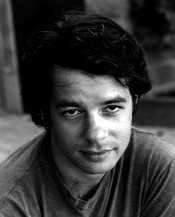Canadian Theatre Encyclopedia
The League of Nathans

Drama in two acts by Jason Sherman. It was first performed by Orange Dog Theatre on April 23, 1992 at Theatre Passe Muraille, directed by Ian Prinsloo, with costumes by Sylvie Plamondon, lighting by David Gibbons, and set and stage management by Cheryl Mills. It featured David Gow, Alyson Green, Michael Healey, Melinda Little, Alex Poch-Goldin, and Cyril Sherman. It was subsequently rewritten (and it is this text that was published by Scirocco in 1996), and premiered in it revised form by Winnipeg Jewish Theatre, January 13, 1996, at Prairie Theatre Exchange, directed by Richard Greenblatt, with set and costumes by Craig Sandells, lighting by Aisling Simpson, music and sound by Cathy Nosaty, and stage management by Laura Astwood. It featured Healey, Ari Cohen, Jordan Pettle, and Harry Nelkin. It was also performed at Great Canadian Theatre Company.
The League of Nathans is a prickly play about a prickly subject. It goes back and forth in the lives of three Jewish men, friends since childhood and all named Nathan: Abramowitz, Isaacs, and Glass. The three have differing attitudes towards their culture. It is, finally, an examination of the sometimes tenuous links between young people and their heritage and between Jewish North Americans and Israel. The play also looks at how history can form (or even deform) a human being. At the play's conclusion, in a confrontation between one who is now a Zionist and one who is a pacifist, no answers are given.
Sherman reached a wide audience with this work which won a Chalmers Award. Though the subject is deadly serious, he serves up his characters and situations with a healthy dose of humour. It is a perfect illustration of what he told the CBC in 1999, "A great quote Charles Ludlum has is: 'If you are going to tell people the truth, you better make them laugh.' Nobody wants to feel like they're going to be preached at in the theatre. You want to feel like you are going to recognize something of yourself in what's going on stage otherwise, you feel left out."
Commentary by Gaetan Charlebois
Last updated 2022-01-17

